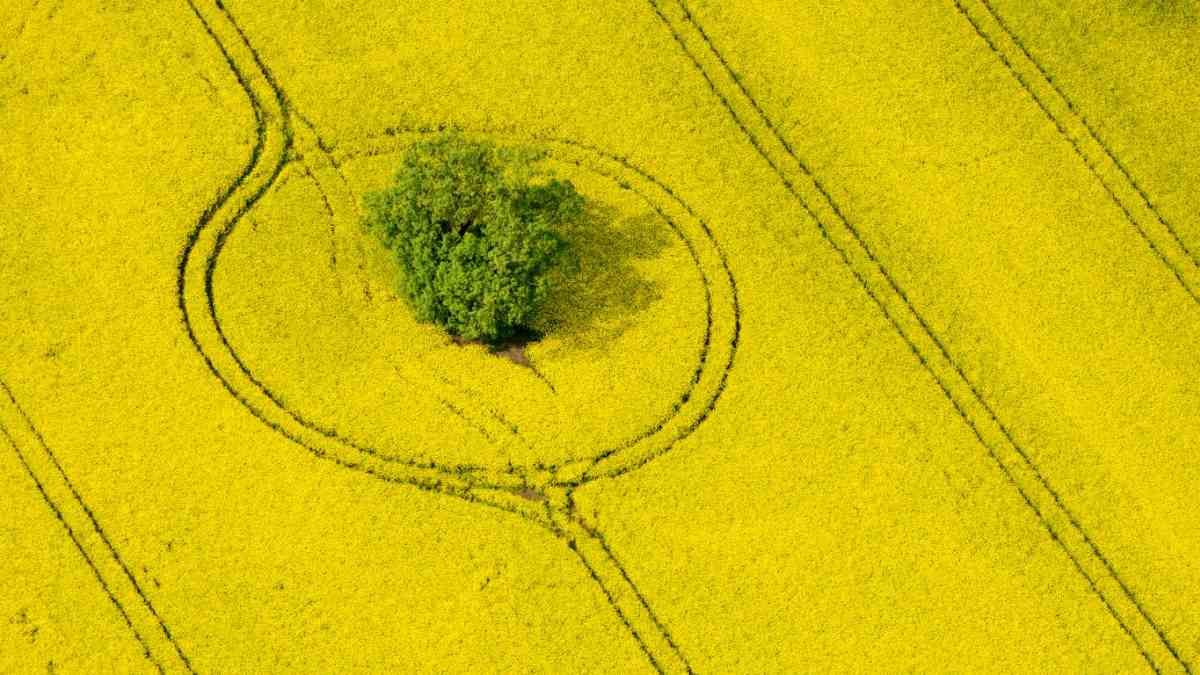There is a pretty good indicator of what Russia is doing in Ukraine and how that is affecting the world energy markets: the price of rapeseed. It had been rising for months, but then, with the Russian invasion, it took a leap. And all this pretty much parallel to the development of the crude oil price. Rapeseed oil is a popular biodiesel. And if the barrel of oil becomes more expensive, the same applies to rapeseed, wheat and the like. It’s been like this for years. Because what feeds people and animals also keeps engines running.
According to plans by the Federal Environment Ministry, this should soon be over. At least that is what an internal government paper suggests, which is apparently also supported by the Ministry of Agriculture. According to this, the incentive to add biofuels to the fuel should rapidly diminish in the next few years – and drop to zero by 2030. This should “reduce the pressure on prices, especially for food and agricultural land,” says the paper.
Up to now, this pressure has mainly come from climate requirements for the mineral oil companies. They have to meet a so-called “greenhouse gas quota”, which increases every year. For this year, it is demanding a seven percent reduction in emissions. In order to meet the quota, the corporations have various options. For example, you can promote electromobility or the use of hydrogen. At their refineries, they can save on climate-damaging gases in favor of the quota. And they can add other, more climate-friendly fuel, up to 1.9 percent used cooking oil and up to 4.4 percent biofuel. The two green-led ministries now want to get to this 4.4 percent.
4.2 million tons of food could be saved in this way by 2023
According to the plans, this limit should be almost halved by 2023, to 2.5 percent. In the years that follow, it will continue to melt until it is at zero in 2030. As a result, the proportion of fuel from food and fodder crops will decrease, “since fuel suppliers would no longer have an economic incentive to use these biofuels,” the paper says. As early as 2023, this will save 4.2 million tons of food and feed, which would correspond to 1.1 million hectares of land.
In any case, the contributions of biofuel to climate protection are “strongly in doubt” – after all, the biofuel crops pushed food production to other areas, writes the Ministry of the Environment. Forests would then often be cleared for them. Environmentalists see it the same way. “This is the right step to mobilize amounts for food in the short term,” says Greenpeace agricultural expert Martin Hofstetter. “I would just prefer it to be even more radical and faster.”
But whether it comes at all now depends on the rest of the cabinet. Transport Minister Volker Wissing (FDP) has already indicated that he is skeptical about the plans. He worries about compliance with the climate goals in transport, for which his ministry is responsible. The industry itself also refers to this, and flatly rejects the plans. The Ministry of the Environment, in turn, wants to achieve the greenhouse gas quota elsewhere in the future, for example through additional incentives for electric cars and hydrogen. According to the paper, the “at best small emission savings” of biofuel could be “compensated for by more sensible measures from an environmental protection perspective.”

